New ideas offered by Director Seo of Pyunkang Korean Medicine Hospital in Seoul
By Special Feature Editor Kim Hyung-dae
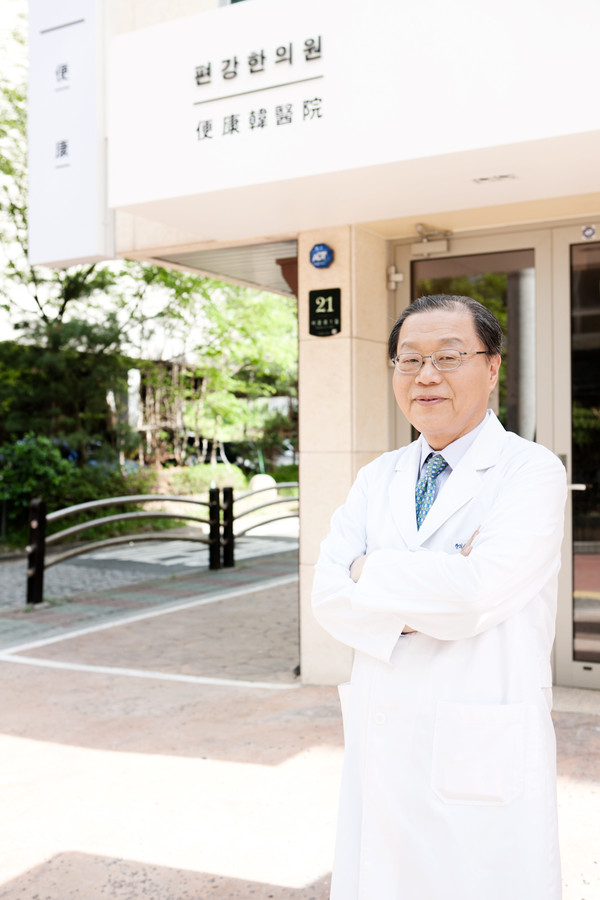
Despite the remarkable development of modern medicine, there is a disease that many people fear because they have yet to conquer. It's cancer. The fear that cancer is a "disease of death" is deeply rooted in the minds of people around the world, regardless of nationality. In fact, cancer is the most common cause of deaths in Korea, which has been the number one cause of deaths for 37 years.
However, there is a doctor who claims that the fatal disease that everyone fears is no longer incurable, which is becoming a hot topic. The main character of the hot topic is Seo Hyo-seok, the representative clinical director of Pyunkang Korean Medicine Hospital and world-famous doctor, who presented the joy of healing to some 155,000 patients through various lung disease treatments over the past 50 years.
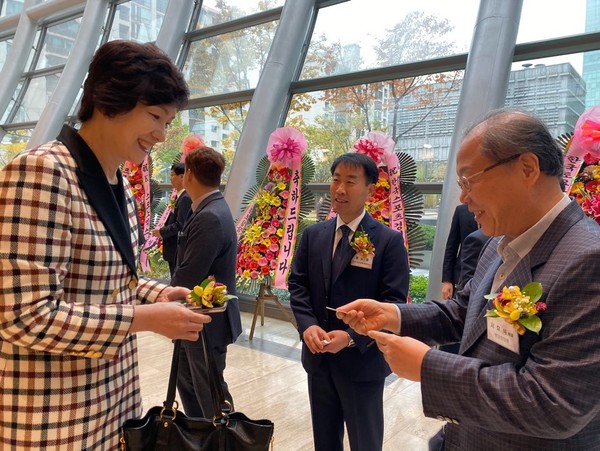
At a time when the world is groaning with unprecedented pandemics, The Korea Post media met Dr. Seo at his clinic in Seocho-dong, Seoul to hear detailed preventive and treatment methods for various cancers that are scarier than COVID-19.
Question: I respect you for keeping your doctor's office in this infectious disease-spreading era even when you passed the 70th birthday. How is your health?
Answer: Very good. I've realized the secret of longevity through countless clinical experiences, so I've been living a healthy and energetic life practicing it.
Q: As expected, you're a health expert. A few years ago, Steve Jobs, the founder of Apple, died of pancreatic cancer at the age of 56, leaving more than 9 trillion won in wealth. It was a pity that he left behind a message saying, "If there's one thing you can get back even if you lose, it is material, but there is one thing that you can never get it back, it is life.”
A: Steve Jobs died of nerve endocrine pancreatic cancer. However, Lee In-rye, who had the same disease and came to me in despair after being diagnosed with a six-month time limit at a Western-style hospital, overcame pancreatic cancer very successfully.
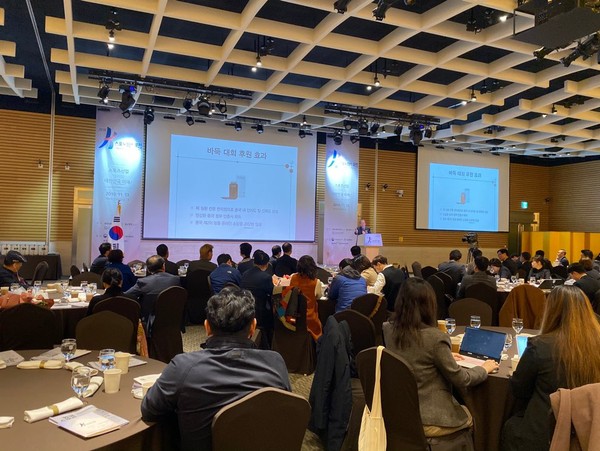
Lee was so weak that she couldn't walk for a month after diagnosis of pancreatic cancer and couldn't answer the phone because her hands were shaking, but now four months after treatment, she climbs mountains for two hours a day and is very happy that no matter how much exercise she does. In fact, when she took another CT at a hospital, she said that four-fifths of the cancer cells disappeared and she was happy, saying that a miracle happened.
(Annex 1: Case of pancreatic cancer treatment for Lee In-rye)
Q: So, why did Steve Jobs, the icon of innovation, fail to treat cancer after trying so many treatments? What do you think is the difference between Steve Jobs and Lee In-rye?
A: Ironically, Lee In-rye was a patient who gave up treatment in modern medicine. Lee was not able to use anti-cancer drugs because of her kidney failure, and she couldn't even find the targeted anti-cancer drugs that fit her. But she said that since she has a special cancer, it seems to have become a blessing because she has no way to treat it in modern medicine.
She was very grateful that her whole body got better without side effects and got a new life as she received a clean lung treatment that helped boost the body's immune system and cured herself, instead of aggressive chemotherapy.
On the other hand, wouldn't Steve Jobs still be alive if he consistently tried vegetarianism, fruit-oriented diet, and natural healing that increases immunity? Unfortunately, he couldn't overcome the persistent persuasion and fear of mainstream doctors, and the side effects of surgery, chemotherapy, and radiation resulted in liver cancer, which eventually resulted in a liver transplant and a life extension.
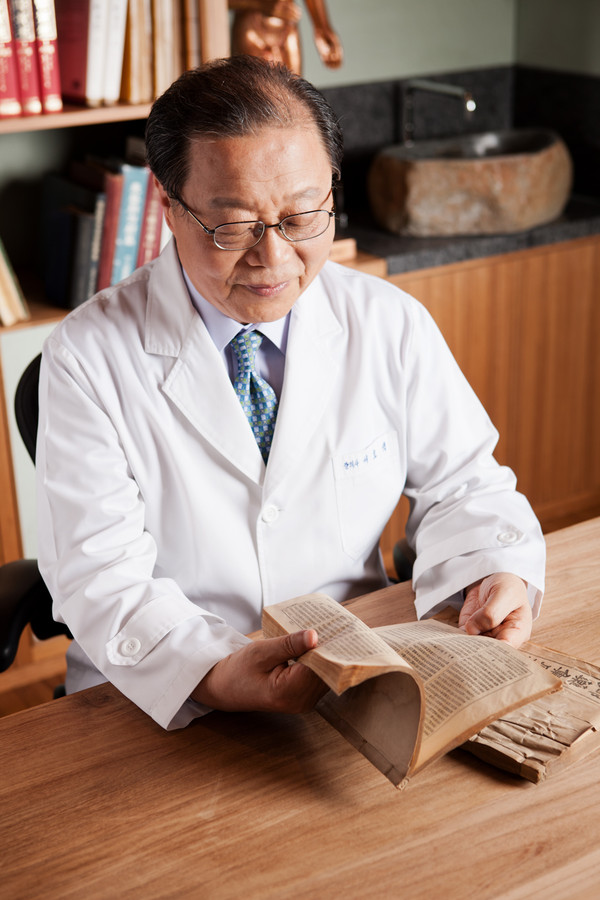
Q: Do you think it's better not to have surgery, cancer or radiation treatment?
A: Of course. Western medicine with artificial and aggressive treatment lowers the immune system to the bottom and hastens death. All that has improved and later deteriorated are the basic type of targeted anticancer drugs, and the doctor says, "The surgery went well," but it's common for a patient to die a few days later. What the doctor says is that "the operation went well" means that any cancer cell was cut out completely.
I think he would have lived much longer if he continued to have cancerous cells. Human suffering in the course of treatment is also due to surgery, anticancer, and radiation therapy, not cancer itself.
As a lot of poison that kills cancer cells is sprayed, it attacks normal cells and causes extreme pain. The terrible pain in terminal cancer patients is all due to anti-cancer drugs. In fact, cancer patients die of pneumonia when they die. They do not die by cancer itself, but their immunity will run out in the course of surgery, anticancer, and radiation treatment. At this time, they have a high fever and suffer from pneumonia and die eventually.
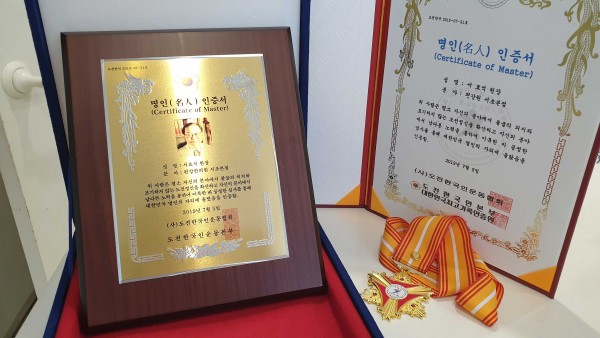
Q: As a fundamental question, what do you think cancer is?
A: In short, cancer is an inflammatory reaction in the body. Immortality is also a false prejudice that is hardened by people's stereotypes. Cancer is by no means a death disease, and it is an overreacting physiological response to inflammation in the body.
Inflammation can occur in any part, typically in the lungs, liver, colon, stomach, pancreas, breast and uterus. Inflammation usually occurs where there is a lot of secretion. The lungs secrete phlegm, digestive juices in the colon and stomach, and gallbladder juices in the liver, all of which are organs rich in mucous membranes.
As these organs age, toxins and wastes accumulate and stop the secretion. The running water will not rot but the stopped water will rot. Becoming rot means that decomposing bacteria reproduce, and when harmful bacteria thrive, secretions become a habitat for harmful bacteria.
Q: Specifically, what are harmful bacteria?
A: We have some 100 trillion microorganisms in our body, which are harmful bacteria, beneficial bacteria, and intermediate bacteria. Harmful bacteria that are harmful to the human body cause inflammation, and beneficial bacteria turn off inflammation. But in order for germs to inhabit, they basically need food.
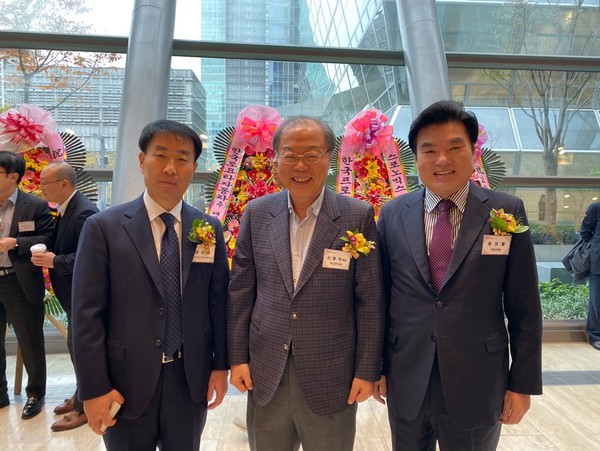
For example, how good nutrition is flowing in the breast because the breast is the place where the baby is fed. If the baby is not breastfeeding and the nutrients are piled up, it will become feed for harmful bacteria. When harmful bacteria stay there, bad germs flock to cause inflammation, and then the normal flow stops.
This inflammation causes the normal action to become abnormal and bloat. At this time, my body releases lymphocytes from the lymphatic glands to defeat harmful bacteria and bring it back to normal. If a lot of lymphocytes needs like this, the lymphatic glands need to grow. And when the lymphatic glands grow rapidly, you can see it by taking pictures with imaging diagnostic equipment such as CT, MRI, and PET at Western-style hospital. People think that natural immune response appeared at a hospital, so they want to distinguish it between positive and malignant, saying that a neoplasm appeared.
With modern medical equipment, we cannot identify less than 5mm, so to determine whether it is positive or malignant, we have to take a biopsy, and we have to take one centimeter of normal cells out of every direction and examine them with a microscope. Then, it hurts a sore area again, and the inflammation gets worse and the lymphatic glands get bigger to heal it. The general public knows that benignity is fine, but malignantness is a disease of death.
I mean, if we didn't know it, there was nothing to happen. However, we find out an inflammatory response through frequent physical examinations, failing to give a doctor in our body time to heal naturally. And we often were dragged into a vicious cycle of biopsy and go into intensive care and wander around from life to another.
Q: Common sense is that early detection of cancer and early treatment are recommended, but early detection can be toxic, right?
A: That's right. There's a personal difference in physiological responses to inflammation, and there's a person who's less swollen, and the other who is swollen too much. If you'll see a picture of the swollen one, you do a biopsy, and get another inflammation, and you'll see other lymph nodes swell in a vicious circle.
At this time, doctors recommend three traditional treatments of Western medicine: surgery, anti-cancer, and radiation. But what is surgery? It's a big break around cancer cells. If you take it off big, you get a big inflammation in the spot where it's taken off. Then, of course, the lymphatic glands will swell again. That's why the doctor said, "The breast cancer surgery went well," and after a while, she was diagnosed with lung cancer. This is because the inflammation went directly to the near spot by the lymphatic gland. It's called 'transfer' in Western hospitals.
Inflammation can go anywhere in the body along the lymphatic glands. If harmful bacteria thrive on inflammation, they are not only in one place, but they wander along the lymphatic glands and land in a suitable environment, as previously explained, they go to the uterus, or to the lungs, and so on.
People think it's good to have frequent medical checkups, and they follow early detection and early surgery like a nice slogan. That's why 20 years ago, one in 20 people was a cancer patient. But the figure becomes one in three now and will be one in two.
When a person lives for a long time, trash has been accumulated somewhere. When garbage is piled up somewhere in the body, harmful bacteria thrive there. When harmful bacteria thrive, we call it inflammation. Early detection of lymph nodes for natural inflammatory reactions and early surgery can eventually cross the irreversible river of early death.
Q: Can it be a problem to detect and treat a fast-paced malignant tumor early?
A: I can't accept the word maliciousness itself. Now that I think about it, doctors have just decided that this and that form is malicious. If you don't touch it artificially, cancer doesn't progress quickly.
The problem is that if you cut it out with a knife, spray it with chemotherapy, or bake it in radiation like an iron, it causes a huge inflammation of the human body, which has become a battlefield. Professor Kim Eui-shin of MD Anderson, a world-renowned cancer hospital in the U.S., also asks countless doctors to "do not operate on cancer" when they come to the hospital to learn or receive treatment.
But when he comes to Korea, he says Korean doctors are operating on all the cancers. The medical reality in Korea is that medicine prescriptions alone are cheap, so you can't afford it, but if you do surgery, you'll get a lot of money, so they'll continue to overdo it.
MD Anderson in the U.S. does relatively little surgery, but the problem is that they use a lot of anti-cancer drugs. I think anticancer drugs are the way to die. The anti-cancer drug is to kill cancer cells by taking targeted drugs, and how highly toxic would you use to kill them? When trying to kill cancer cells, even normal cells are destroyed, causing greater inflammation. For this reason, even if the size of cancer cells is temporarily reduced due to anticancer drugs, they will grow again.
If cancer cells decrease as much as you get chemotherapy, who's afraid of the treatment? Even if cancer cells are temporarily reduced, reoccurrence, transfer, and deterioration are repeated. It is regrettable that there are many patients who die after suffering from life-and-death conditions.
Q: How do we get the fundamental treatment?
A: As I said before, cancer is not a disease. It's just an increase of lymphatic glands as a physiological response to severe inflammation. People with severe increase will be diagnosed with tumors. Therefore, it is desirable not to destroy the precious immune system with aggressive treatment with excessive fear, but to take it lightly and approach it according to reason like my body's physiological response to allergies.
For example, there are people who are fine with pollen or house dust, and there are some people who sneeze, and there are people who are fine with the inflammatory reactions in their bodies, and there are people who are exceptionally swollen. Doctors should not try to divide them into benignant and malignant by excessive biopsy, calling it a neoplasm. The key to treatment is to understand cancer as a sensitive increase of lymphatic glands for severe inflammation so that my body's watchman lymphatic gland can regain health.
Q: What do you have to do to make your lymph nodes healthy?
A: Above all, the king of lymphatic glands, tonsils, should be healthy. Since tonsils are directly related to lung health, it is imperative to clean the lungs, which are the main factors of immunity. When the lungs are cleaned, the tonsils, the largest lymphatic glands in my body, also become stronger, and all lymph nodes connected to this will recover their health and no longer spread after four months of tonsil health.
If you tie it up for a year in the status that it's no longer growing, it's as good as beating cancer. If a patient takes a “Cheongpe (lung cleaning)” oriental medicine for a year without surgery, chemotherapy, or radiation treatment, and after diligently cleaning the lungs, CT scans show that the tumor does not change or decrease in size, then you can be sure that you will not die from that cancer. If you are diagnosed with complete recovery after five years of continuous “Cheongpe” treatment and aerobic exercise, your health improves overall and you can be treated with your own immunity.
Q: Is it possible to treat patients with terminal cancer? What should we do with patients who have already had surgery, anticancer, and radiation treatments?
A: I don't think it's meaningful to divide cancer into four stages. It's just a distinction by Western doctors, and there's no terminal cancer. I don't think cancer is a disease, so I think you can overcome it with the health of your tonsils, whether it's early or late.
The problem is people who performed surgery, chemotherapy, and radiation. If you've already done everything you can with surgery, chemotherapy, and radiation, your immune system will go down to the bottom. For those who are no longer able to recover their immunity, it is best to help them meet their deathbed comfortably.
Of course, those who have a strong will to live will have the opportunity to restore their immunity once again through the “Cheongpe”, so three out of 10 people can still survive. Also, those who have had surgery but have not had chemotherapy or radiation can be managed well. But, for those who have performed surgery, chemotherapy and radiation, their will and stress management are the key to survive.
Healthy people can also fall down from the immune system stairs when stressed, and sick people can be fatally hit by small shocks. At this point, you need a will. If you throw a rope to a drowning person, the person has to hold it tight so that you can pull him up. But, if the person says, "I'm done. I'm done," without holding the rope, he will sink below the surface. That's how important the will for life is.
Q: Cancer is a matter of mind. Lastly, please tell me the way to truly cure cancer.
A: In fact, cancer has a long treatment period, so it is generally considered a complete cure if the cancer cells have not grown and stopped for five years, or disappeared. In the case of lung cancer, the treatment period is long, but many people said they have become happy after fundamentally controlled lung cancer through the principle of “Cheongpe.” They said they have become healthier than before they suffered from the disease as the small diseases that are mysteriously cold, numbness and pain disappeared.
Like Kim Dal-yeop, who overcame many chronic diseases and opened his second life in a leisurely manner after treating lung cancer at Pyunkang Korean Medicine Hospital, the true healing path for everyone to enjoy complete healing freedom without side effects is to strengthen immunity through “Cheongpe.” (Annex 2: Kim Dal-yeop's lung cancer treatment case)
The regeneration of lung cells from lung cleaning takes place as slowly as a cactus grows in the desert, but it will not only overcome cancer, but also regenerate the whole body to give you another 30 years of life, and make you the protagonist of a vibrant 100-year-old health.
(Annex 1)
End-stage pancreatic cancer, four-fifths of cancer cells reduced!
- Lee In-rye's treatment case
A miracle is happening to me!
In fact, until June this year, I was a terminally ill pancreatic cancer patient wandering in despair. At first, I couldn't digest, and my chest hurt and felt sore. I used to wake up at 2 a.m. because my stomach hurts and my back feels like it's piercing.
I thought it was reflux esophagitis, so I took the medicine for a long time. And then I went to the gynecologist where I went to get a CT scan, and I happened to find out that it was pancreatic cancer, not reflux esophagitis. At that time, the cancer was transferred to liver and lungs, becoming the stage 4 cancer.
I've been to Ilsan A Center, but I heard that I have a rare nerve endocrine cancer. It's a rare cancer that's close to one or two people a year, so there's no medicine, and they said I can only live for six months because they can't treat it.
Even the hospital C in Bundang, where I visited for the targeted anti-cancer drugs, said that there is no anti-cancer drug suitable for me. Even if I get anti-cancer drugs, my kidneys are bad and I can't get them because of side effects. So I was in desperate situation, waiting for the day to die, wandering around in a state of abandonment.
After seeing my condition, my younger brother who lives next to me recommended, "You don't need to make medicine, so let's go to Pyunkang Korean Medicine Hospital." A person who has colorectal cancer got anti-cancer drugs at the hospital and dialysis because his condition got worse and their whole body got swollen, so many people in the neighborhood say he will die.
But his son searched the Internet and found Pyunkang Korean Medicine Hospital. And he became fine now after taking medicine there. My brother told me to come out by 9 a.m. with my daughter, so I came to Pyunkang Korean Medicine Hospital to take medicine.
I visited the hospital for the first time in mid-July and I've been taking the medicine for 4 months now. First of all, I feel much better in stomach and feel good in my face. For a month after I was diagnosed with pancreatic cancer, I was so weak that I couldn't walk and my hands were shaking that I couldn't answer the phone.
However, after taking the medicine, called “Pyunkang Oriental Medicine,” my voice became clear and strong, and now I'm not tired even if I walk a lot. Most of all, when I tested it again last September, the cancer has decreased a lot. Four-fifths of the cancer cells were reduced. Thank you so much.
I'm going to go to the hospital and get another CT on November 26 and see the results again on November 30. Even then, when cancer cells decrease, it gets really great. The man next door, who saw my improvement in lung cancer, said he wanted to go with me, so I brought him to Pyunkang Korean Medicine Hospital with my daughter. A month ago, my younger brother also went to the hospital. He took a Pyunkang medicine and a lot of black mushrooms on his arm disappeared.
He said he felt good in stomach. He said, “Let's eat together.” So I've never left it out and I've been eating it and recommending the hospital to many people around me too.
The hospital C told me to go to a nursing hospital, but I'm not going to a nursing hospital and I'm just taking “Pyunkang” oriental medicine at home with gratitude because I feel much better after taking it. I am doing a lot of advertising for the hospital because I am experiencing great effects. I hope many people will have hope after seeing me.
As the director recommended, I'm glad I didn't take anti-cancer drugs and didn't get injection. And since they said there is no anti-cancer drugs that are suitable for me because I have special cancer, I think it's good. I think it's a blessing that I didn't get any anti-cancer drugs.
When I was first diagnosed with a time limit, I thought, "I'm going to die within a year." But these days, "I'm going to live!" Look forward to it and think positively. I think that eating the “Pyunkang” oriental medicine can clear the blood, and if all the blood becomes clear, it will heal, and that's what I say to people.
Western-style hospitals say I shouldn't take oriental medicine, but I don't listen to it. Instead I'm working out a lot. As soon as I wake up in the morning, I stretch for about 10 to 20 minutes, and I do walking exercises for an hour and a half to 2 hours a day. I couldn't even think about it before, but now it's not hard no matter how much I exercise. It's a miracle. Thanks to oriental medicine, right? Thank you so much for Pyunkang Korean Medicine Hospital which gave me a new life with a good medicine.
(Anex 2)
Treatment instance of Kim Dal-yeop at Pyunkang Korean Medicine Hospital:
Kim said: “My whole body got better after overcoming lung cancer, bleeding, and hepatitis B.” Here are details of the personal experience of Kim:
I was born in January 1942, and am a carrier of hepatitis B. My grandmother gave me a lot of medicine because I coughed a lot from my childhood with bronchial asthma, and I had a very hard time in my childhood due to frequent illness from a cold and other such ills.
I kept coughing frequently and had a lot of phlegm, but when I got married and was in my early 30s, the sputum was mixed with blood and the color of brown-colored water appeared. When I spit out a lot of sputum, I thought, 'I must be very short-lived.'
But at the time, I wasn't in a position to go to the hospital, so I lived saying: “Well, my life is in the hands of the God!” But sometimes, there was too much phlegm and to avoid the crowds I hurried to the toilet and spit out, and continued such a difficult life.
Since I was so weak in constitution, I went enrolled for my military service in 1967 and suffered a lot. Then in April 2013, a lot of thick sputum came out, and my condition got worse.
Still, while continuing to work, I once saw a thick rice wine-colored urine. I thought it wasn't the color of blood, but when I went to the urology department, I was told that they were suspicious of urolithiasis.
So, I underwent many tests, including a urine test, and I started my relationship with S Hospital. From then on, I went to S hospital and said I had to improve my whole body, and so I started receiving medical treatment there, including urology, gastroenterology, ophthalmology, and respiratory organs.
With the passage of time, my problems like urolithiasis substantially disappeared, but there remained a problem on the edge of my kidney, and removing it would help my life, S Hospital had a robotic surgical device, operated with it, and I received treatment for more than 2 years and 2 months.
Then, the result of the treatment was good, but I checked the lungs because the urology department said that it could metastasize to the lungs first.
I took a CT scan at the urology department and asked the thoracic surgeon to analyze it, and they recommended to me a person entitled Deputy Director of the Cancer Center,’ a lung CT expert.
When I went to listen to the analysis results with my wife in July 2016 from that person, I heard a real surprise news very bad for me. Suddenly, they informed that I was in the late stage of lung cancer.
I was told that the cancer was widespread that it was impossible to perform operation.
The doctor was busy, so he went to the next room, and when I asked the nurses, they said, “That's exactly what the doctor said.” I've been making a lot of effort for health, such as mountain climbing and regimen, which were known to be good for health, and I thought I improved a lot while attending S hospital.
There was only a problem with the kidneys, but I thought there was no problem elsewhere, but hearing such a revelation I became very much worried.
When I was reading a newspaper, Chosun Ilbo, I found an article at Pyunkang Hospital, and I thought I should clean my lungs first. So, I visited Pyunkang Hospital for about 20 days after the diagnosis of lung cancer.
I started taking Pyunkang-tang medicine from then, hoping that I could get better through the hospital director's consultation. After that, I continued to take Pyunkang-tang for 21 months, used a lot of antibiotics, and continued to take all kinds of Western medicine, but I had faith that Pyunkang-tang recovered my rhythm and strength to handle the tolerance of Western medicine.
Actually, after taking Pyunkang-tang, I went mountain climbing and my family took care of healthy food, and the phlegm began to disappear.
In the past, I had to cough and spit phlegm when I just talked, but now there is no such thing even if I talk for a long time, and when I go to karaoke music room, I can't talk because my throat is sore, but that problem has also disappeared. So, I am thinking that Pyunkang-tang is the medicine that brought a turning point in my life.
Most of all, after being diagnosed with lung cancer at S Hospital, I felt so bad that I went to all other departments to receive treatment again, but after 7 to 8 months of taking Pyunkang-tang, my lungs became clearer and the number of bacteria started to decrease even after sputum examinations.
As a result of taking Pyunkang-tang for 21 months, my condition improved substantially and so I started going for regular checkups once in every 6 months, but they said there was no problem when I took lung CT again.
When I was in my 20s, I had tuberculous pleurisy, so when I took CT of my lungs. It was so cloudy and misty that I couldn't see my ribs.
The trachea connected to the lungs was also damaged a lot, so it was very refracted and unsightly, but now there were only a few traces of pleurisy. However, the whole white things like fragments were gone.
I have suffered a lot while attending an ophthalmology clinic for 6 years due to macular degeneration, but my eyesight did not worsen anymore, and it seemed that Pyunkang-tang cleaned the lungs and gave me the physical strength and immunity. That is why I could withstand firmly even if I ate a lot of that strong medicine.
The medicine given to treat the respiratory disease made the patient vomit a lot of blood. Sometimes, the patients vomited too much blood and people would not come to the house not wanting to see it.
I was taken to the emergency room of S hospital, and all of those things disappeared.
My condition improved a lot. In the past, the sputum came out like a lump, but now the coughing or symptoms improved a lot. I couldn't even imagine having no cough or phlegm. Now they are all gone.
My energy has improved substantially, so now I play golf, go up to Namhansanseong Mountain Fortress, exercise, and I have no problem living.
As my body improved in this way, everyone says that I look much younger than my actual age and I feel that my body is better than 7 or 8 years ago.
I could not believe it in the past and I could not recommend Pyunkang-tang. Now I can recommend the medicine with no reservation.
On the other hand, I have been suffering from lung cancer because I have been bleeding from a long time ago and the bronchi have been bad, but I think that it was cleared through taking the Pyunkang-tang medicine.
Actually, I don't know what it is or what it is not, but I think that Pyunkang-tang saved my life. So, I can't thank the Hospital very much. And whenever I look at the signboard of Pyunkang Korean Medicine Hospital while passing by Seocho-gu area in Seoul, I become really thankful for the treatment given me at the hospital.
About Pyunkang Korean Medicine Hospital:
Pyunkang Korean Medicine Hospital was established in Sanbon in 1998. After graduating from the Senool of Korean Medicine, Director Seo Hyo-seok studied tonsillitis for 46 years to treat his own condition and Pyunkang-Tang was developed as a result.
The excellent efficacy of this medicine and the support shown by patients visiting the Pyunkang Hospital led Director Seo to expand his clinic and establish branches in Ansan, Myeongdong and Seoeno. Pyunkang-Tang and Pyunkang-hwan are being exported to some 30 countries worldwide to be supplied to the overseas Koreans who trust the efficacy of these medicines, and it wouldn’t be an exaggeration to say that Pyunkang Korean Medicine Hospital has become an iconic Oriental medicine brand of Korea.
Globalization of Pyunkang Korean Medicine Hospital started. There have been a growing number of patients with atopic dermatitis from Japan visiting the Pyunkang Myeong-dong branch, which opened in April 2008. Pyunkang also opened its branch in Seoeno and its first overseas branch in Los Angeles simultaneously on Feb. 2, 2009, and this marked Dr. Seo’s new beginning as the leader of a globalized Oriental clinic.
On Dec. 16, 2008, the Atopy and Pyunkang-tang Oriental Medicine Research Institute was established in Japan, with the central role played by Dr. Shoyama (Doctor of Pharmacology) at Kyushu University, who is also the president of the Japanese Society of Pharmacognosy. These achievements would not have been possible had it not been for the trust imposed by the users given to Pyunkang-tang and support for the hospital.
Pyunkang’s objective is to conduct ceaseless research on rhinitis, asthma and atopic dermatitis and ultimately contribute to the improvement of health for all mankind. Pyunkang also aims to globalize Oriental medicine, a proud part of the Korean heritage. Dr. Seo believes that these feats were possible with the clients’ unwavering trust and support.
Biographical data of Director Doctor Seo:
Career overview
(Present) Director of Pyunkang Korean Medicine Hospital in Seocho
(Present) Outside professor at Kyung Hee University Korean Medicine
(Present) Vice-President of the Alumni Association of Kyung Hee University
(Present) Director on the board of the Korean Alliance to Defeat AIDS
(Present) Vice-President of the Korea Global Healthcare Association
Former Director of Kyunghee Oriental Clinic in Gunpo
Former President of the Seoul Dongdaemun-gu Korean Medicine Association
Former full-time instructor at the Oriental Hospital of Wonkwang University
Graduated from Kyung Hee University Korean Medicine
Opened Dongindang Oriental Clinic in Daejeon
Published books:
Pyunkang: Road to Longevity (Pyunkang Publisher, 2012)
Health Miracles (Pyunkang Publisher, 2010)
From Atopy to Intractable Diseases (I-Olive, 2005)
Director Seo Yu-ri
Career overview
Graduated from Kyung Hee University Korean Medicine
Graduated with a master's degree in Korean Medicine
Completed the Internship program at Kyung Hee University Medical Center
Completed the residency program at Kyung Hee University Medical Center (Internal Korean Medicine)
Kyung Hee University Oriental Hospital Korean Medicine Internist
A member of The Society of Internal Korean Medicine
(Former) Urimom Korean Medicine Hospital
(Former) Chunwondang Korean Medicine Hospital Chief Director
(Present) Pyunkang Korean Medicine Hospital Director
Published papers
The effect of Ouhyul herbal acupuncture point injection on shoulder pain after stroke (Evidence based complementary and alternative medicine)
A case report of Lateral medullary infarction patient who complains Diplopia and Ptosis with Korean traditional medical treatment
A case study of Improved Secondary Headache and Facial pain caused by cerebral infarction treated with oriental medical treatment
A case of a patient with dyspnea diagnosed as chronic heart failure treated with Mokbangkitang
Globalization of Pyunkang
Pyunkang is the leader in the globalization of Korean medicine.
In modern medicine, the three most common intractable allergic diseases, which are atopic dermatitis, rhinitis and asthma, are regarded as incurable diseases that affect countless people. Convinced that we can help treat these diseases based on our experience, we at Pyunkang Korean Medicine Hospital have been preparing for a long time to globalize Pyunkang-Hwan.
Many Koreans went overseas, seeking medical treatment between the 1960s and 1980s, but the situation has been overturned. We are making an effort to heighten the status of Korean medicine by promoting our outstanding medical technology and the excellent treatment effect of Pyunkang-Hwan as a means to contribute to the economic development of Korea and the improvement of health for all mankind.
Participation in the 4th World Korean Business Convention in 2005
Seo Hyo-seok, the Principal Director of Pyunkang Korean Medicine Hospital, attended the World Korean Business Convention along with successful overseas Korean businessmen as well as experts from various sectors and the economic leaders of tomorrow. Of some 15,000 Korean medicine doctors worldwide, he was the only one who attended the convention to promote the excellence of Korean medicine. There, he declared that there is a cure for chronic diseases such as rhinitis, asthma and atopic dermatitis and demonstrated the excellence of Korean medicine to overseas Koreans.
Other overseas activities
2007. 05 Appeared on “Ask Anything” and “Healthy Year-Round” on KBS LA in the first half of the year and gave a special lecture on the 3 major allergies (atopic dermatitis, asthma and rhinitis)
2007. 12 Appeared on “Ask Anything” and “Healthy Year-Round” on KBS LA in the first half of the year and gave a special lecture on the 3 major allergies (atopic dermatitis, asthma and rhinitis)
2008. 07 Gave a special lecture at the Seminar for Oriental Medicine Doctors at Stanton University School of Oriental Medicine
2008. 12 Founded the Atopy and Pyunkang-Hwan Oriental Medicine Research Institute in Osaka, Japan

